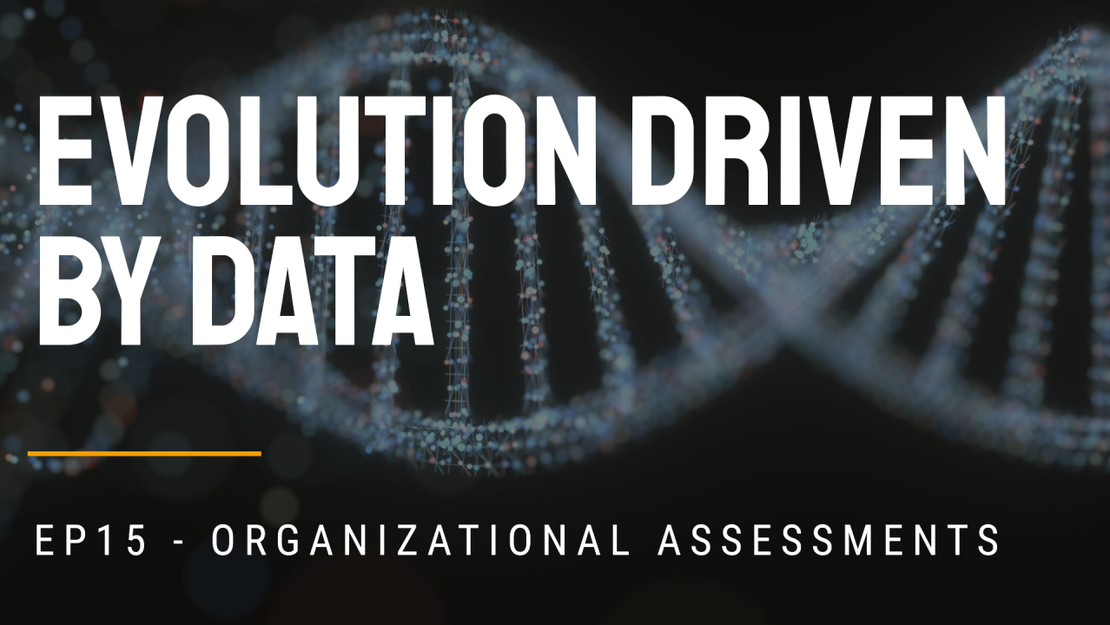Visionary Digital Evolution Strategist
Rooted in Formula 1 excellence, with over 30 years in IT starting as a child in the 1980s, …

Hey there, fellow digital warriors! 🚀
Welcome back to the Forge of Unicorns! In our last post, we dove deep into why “SAFe isn’t the problem” but the approach to implementing it is where most transformations go off course 💥. Today, we’re taking a closer look at why our organizational assessment is crucial and why “Stop Transforming, Start Evolving” is not just a catchy phrase but a necessity.
Let’s jump right in! 🪂
In the rapidly evolving digital landscape, understanding where your organization stands is the first step 👣 toward meaningful evolution. The traditional transformation approach often overlooks this critical step, leading to misaligned goals and wasted resources chasing simple implementations by the book. Unfortunately, sometimes engineers’ attempts to reduce complexity can result in users misunderstanding the real complexity of doing things. Embracing a copy-and-paste transformation with SAFe, Spotify, etc., without the data to go beyond the rules written in the book, is a pitfall that burns 🔥 money 💰!
Organizational assessments help identify gaps between the current state and the desired future state, aligning reality to business vision and future plans. It provides a objective picture 📊 of strengths, weaknesses, opportunities, threats, and the distance between dream and reality. These kinds of data are vital to ensure a return on investment for executive boards and venture capitalists pumping money into digital transformations.
Without a data-driven approach, making decisions is challenging 😰. Cultural and emotional biases often lead to poor decisions, which are typically output-based rather than outcome-based. Decisions that are short-term and emotionally connected to all the money spent.
Look at the DORA DevOps model, often considered the “most scientific.” Despite its reliability over the past years, it’s still largely empirical, showing correlation rather than causation. This highlights the misconception that Newtonian laws apply to complex transformations; the same practice might work in scenarios A and C but fails in B. With the right data, decisions become easy and clear; whether to proceed, pivot, or stop. Without it, you’re gambling on a brighter future based on effort alone.
An important aspect connected with data is the ability to elevate a discussion from short-term output to long-term outcome.
Output: The tangible results of activities (e.g., number of features delivered).
Outcome: The impact of those activities (e.g., improved customer satisfaction).
Outcomes are the real game-changers that show if you’re getting your ROI. With the right experts, an organization can turn hypotheses into objective discussions, proving that the evolution experiments actually work or not. This isn’t just about hitting targets—it’s about unleashing the brainpower often trapped in companies bogged down by painful transformations. No more zombie employees just waiting for payday! Boom 🤯 turn that potential into progress.
Outcomes are the missing link that boards and investors crave. Outcomes are the “Sun ☀️ Power” fueling Key Results in the OKR framework. OKRs aim high, measuring outcomes through behavioral changes, serving as the cornerstone of a transparent, data-driven strategy tool. They drive evolution by pushing for behavioral changes through experimental initiatives. When these initiatives hit or come close to their goals, they reshape habits in the right direction. Weekly data transparency ensures everyone, from the ground floor to the top execs, stays in sync.
Ever heard of “Shuhari (守破離)"?It’s a Japanese martial art concept that perfectly encapsulates the journey to mastery:
Shuhari also describes a common pitfall in digital transformations: many stop at implementation a framework by the book (Shu 守).
Why 🤔? Without data, they can’t leap to adaptation (Ha 破) and evolution (Ri 離). Data is the key 🔑 to unlocking 🔓 evolution, and assessments are the first step to gather this vital information. Objective and reliable data turn even the toughest discussions into objective data analyses, driving continuous improvement and real transformation.
To evolve an organization in a complex scenario like scaled agile in software development, we need multidimensional observation points and related data. The organizational assessment designed by BriX Consulting after more than a decade of research and practice is based on five levels of observation:
In all these almost two decades of research, we’ve developed a model that prioritizes minimal productivity loss. Our organizational assessment isn’t about shutting down your shop for months to gather data. Instead, we use a well-crafted async model that aggregates individual observations into team and department perspectives, connecting all five layers with cross-domain markers that speak the right language, draining a marginal amount of time from your labor force.
What sets us apart is our use of Domain-Driven Design (DDD) concepts to create marker-driven data, which is then translated into the most appropriate unambiguous language for its audience. This groundbreaking approach ensures our assessments are clear, unbiased, and laser-focused on the data, avoiding cognitive biases and zeroing in on what’s important.
To stay in the loop with all our updates, be sure to subscribe to our newsletter 📩 and podcast channels 🎧:
🎥 YouTube
📻 Spotify
Visionary Digital Evolution Strategist
Rooted in Formula 1 excellence, with over 30 years in IT starting as a child in the 1980s, …